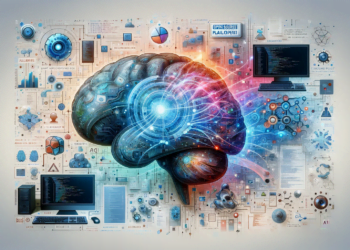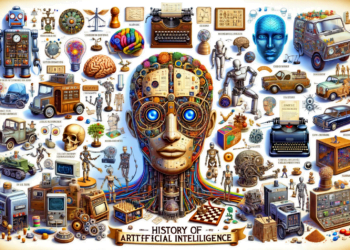The aspiration to replicate and, eventually, outperform human cognition with machines has ushered in a new era in Artificial Intelligence (AI) research. General Artificial Intelligence (AGI), or systems with holistic cognitive abilities akin to humans, represents the pinnacle of this aspiration. In the financial sector, a complex domain heavily reliant on swift and sound decision-making, AGI presents a revolution sparked by unprecedented opportunities alongside significant challenges.
AGI Opportunities in the Financial Arena
High-Level Cognitive Automation:
AGI systems in the financial sector might perform tasks traditionally requiring human general intelligence, such as multifaceted credit risk analysis, negotiation, and portfolio management. For instance, the AI OpenAI GPT-3, with its proficiency in natural language processing, is already enhancing the efficiency of chatbots for providing personalized financial advice. However, a fully developed AGI could understand and analyze each customer’s context holistically, customizing services and investment strategies to the level of an expert human advisor or even surpassing it.
Risk and Fraud Management:
Under AGI, the identification and mitigation of risks and frauds emerge as a dynamic process influenced by an understanding of complex and subtle patterns within vast amounts of data. Unlike current AI systems that specialize in specific tasks within these domains, AGI could offer mitigation plans and preventative actions formed by a comprehensive understanding of anomalies across various financial systems.
Development of Innovative Financial Products:
AGI is responsible for creating novel financial products that encompass detailed simulation of financial markets and economic models to forecast flows and movements with a long-term perspective. This includes reprocessing and restructuring these products in real time according to changing market contexts, a challenge still too complicated for conventional AI.
Challenges of AGI Implementation in Finance
Reliability and Predictability Issues:
While AGI applications promise to be revolutionary, the robustness of systems and their ability to deliver reliable and predictable results in real-world scenarios remain a challenge. The availability of huge and diverse datasets is imperative, as is the need for exhaustive validation across different contexts and market conditions.
Ethics and Accountability:
The capability of AGI to replicate human cognition also means the potential to replicate our faults. This raises ethical questions, especially in areas like algorithmic trading, where AGI decision-making could significantly impact financial markets. Establishing frameworks of accountability for when autonomous AGI decisions produce negative outcomes is a fundamental challenge.
Regulation and Governance:
The adoption of AGI will restructure financial practices, demanding a reconsideration of current regulations. AI exposed to unsupervised learning in global financial environments could develop strategies that, while beneficial for an individual entity, could be detrimental or unstable in a macroeconomic context.
Recent Advances and Case Studies
Recently, the integration of specific neural processors, such as Tensor Processing Units (TPUs), and the expansion of methodologies like reinforcement learning have enabled advances in predictive capability and decision-making of AI systems. This is exemplified in DeepMind’s AlphaZero application, whose performance in strategy games, with no prior knowledge and training from scratch, suggests the potential for the development of advanced financial strategies by AGI.
In real-world cases, Hedge Funds like Bridgewater and Renaissance Technologies are investing in AGI to better understand market patterns and improve their trading strategies. Although still far from true AGI, the trend towards adaptive and autonomous AI demonstrates the potential to disrupt traditional financial operations.
Future Directions and Innovations
With processes like Deep Learning advancing rapidly, it is believed that AGI will be able not only to analyze structured data, but also interpret unstructured information, such as news and social trends, to make economic decisions. This will lead to automated and highly informed decision-making.
The integration of AGI with blockchain technology for the creation of immutable financial records and automated solvency testing systems could significantly increase the transparency and security of the sector.
Conclusion
The journey toward true AGI in the financial field is full of optimization and growth opportunities, but it also imposes a constant reflection on the reliability, ethics, and regulation of autonomous and intelligent systems. It is at this intersection between transformative capability and the challenges inherent in adopting AGI that the future frontier of global financing lies. As financial institutions align with this new technological paradigm, vigilance and collaboration among AI experts, regulators, and financial professionals will be crucial in shaping an industry that is innovative, yet at the same time stable and fair.






















